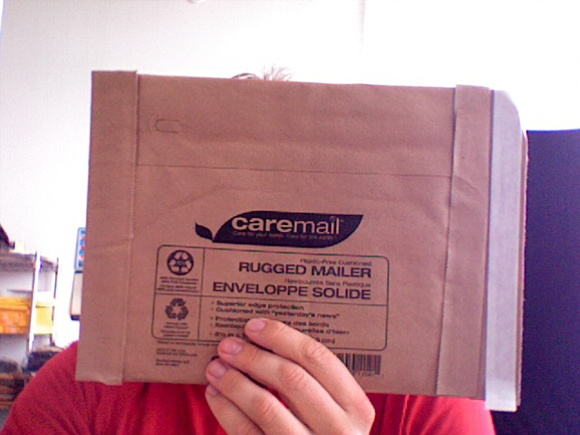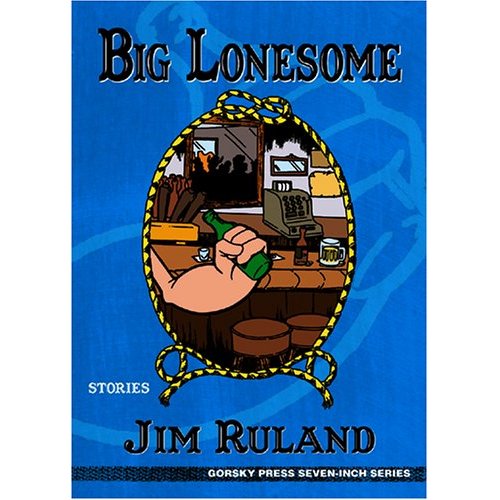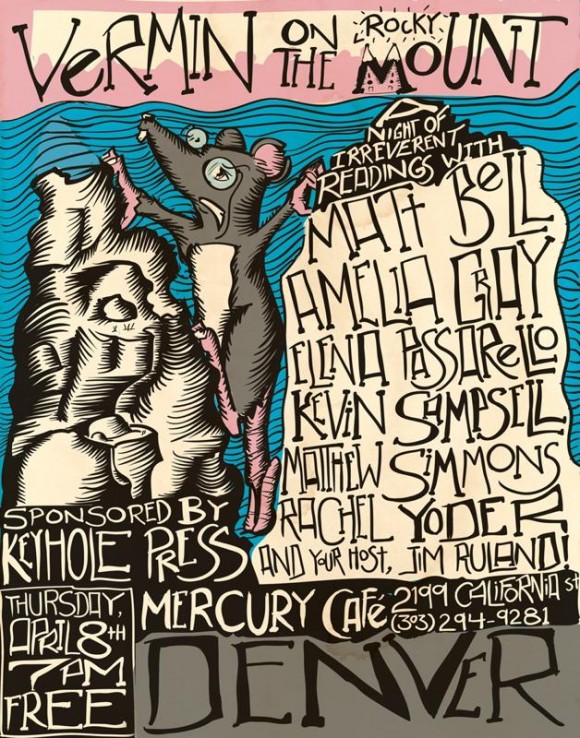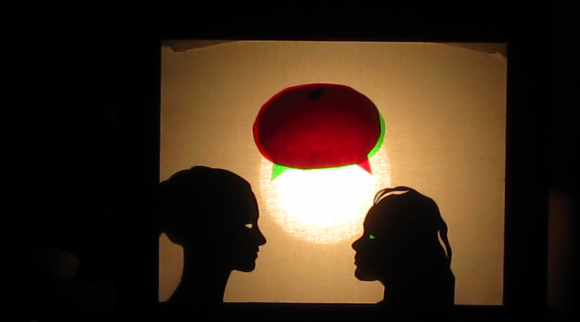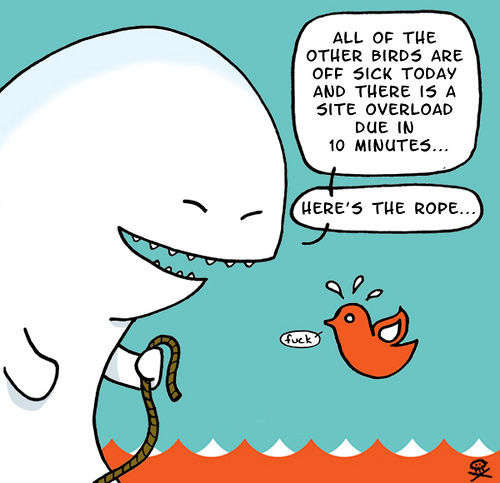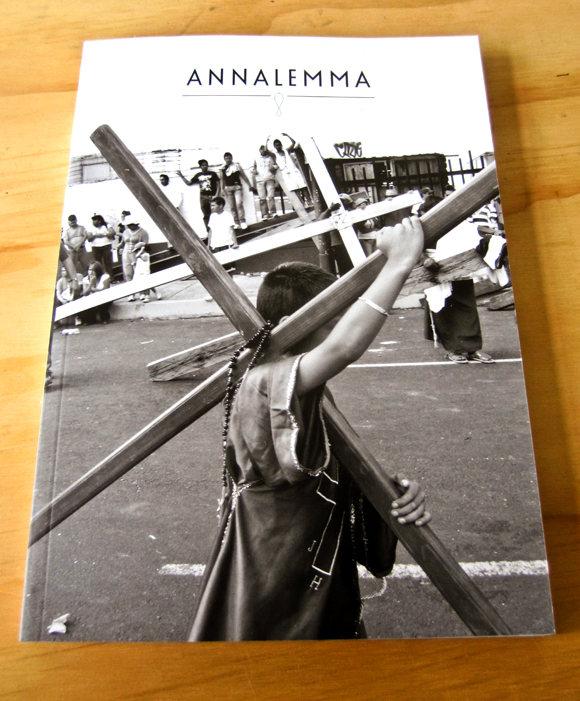Order you copy of Annalemma Issue Six: Sacrifice today and it will come shipped to you in this fancy biodegradable mailing envelope. No more more contributing to the North Pacific Gyre for us, no sirree. Man, I’m parched. Anyone seen my bottle of Evian?
Archive for the ‘Annalemma’ Category
Seeking Readers.
***UPDATE: POSITIONS FILLED. THANKS EVERYONE FOR WANTING TO HELP OUT!***
Do you want to feel the thrill of editing a lit magazine but without all the financial and logistical headaches? Do you want to know how it feels to wield the power to crush someone’s dreams or send their hearts soaring? Do you want a glimpse into the beautifully sinister machine of small press publishing? Then apply to become a reader for us!
We’re gearing up to announce the new theme for the print issue and we’re looking for folks to help us with the onslaught of stories and essays that are sure to come our way. Why would you volunteer to read the slush pile? Well…
FACT: Reading slush makes you a better writer. Lots of people make lots of mistakes in their writing. You will see these mistakes in your own writing. You will realize that it’s lame to write about drugs.
FACT: Reading slush makes you attractive to the opposite sex. The more stories you read, the more you become connected with the way the human mind works, the more you are able to read people, the more you can tell if someone likes you from across a crowded bar, the more you are able to ignore that person, the more they will pursue you,. And then you strike, my friends. Then you strike.
FACT: Reading slush will get you one copy of Annalemma Issue Six: Sacrifice and one back issue of your choosing.
Email chris {at} annalemma {dot} net with a brief bio, what kind of writing you like and any experience you may have reading submissions. Just a heads up, it would be helpful if you’ve read any of the stories on the website and in the print issues and/or have been published in them. We’re using submishmash now, so don’t worry about this being an organizational nightmare.
Hey Florida!: Photo Show Tonight.
There is some cool shit happening tonight if you live in Orlando: Annalemma is sponsoring “Hello from Florida: Photographs of the Sunshine State” a photo show curated by none other than our own print designer, Jen O’Malley.
The show will feature all works by Floridian photographers including Annalemma contributors Rose Wind Jerome, Ryan Marshall, Kim Vang and Wheat Wurtzburger.
6-10pm at Gallery at Avalon Island (39 South Magnolia Ave. Orlando, FL 32801) as part of the Snap! Orlando Photography Festival. Come on out folks, it’s gonna be tighter than my hands around the throats of BP Oil executives, given the opportunity.
120 in 2010: Interview with Jim Ruland.
Issue Six contributor, Jim Ruland is the author of the short story collection, Big Lonesome, and curator of Vermin on the Mount, a reading series hosted monthly in LA. We spoke over the phone last week concerning writing, work and the Navy.
A: So we had to postpone this cause you were at work?
JR: Yeah, I was at work, and the big pacific west coast time difference thing.
A: So where exactly do you work?
JR: I work at an Indian casino.
A: So what was happening? You guys were doing an installation or something?
JR: Yeah we were putting together something for a new promotion. It involved a bunch of graphics down on the floor.
A: What kind of work do you do at the casino?
JR: I’m a copywriter. I write all the ads. Do all the copywriting for the marketing department.
A: Do you get any inspiration for stories from your work?
JR: I do. I got a novel out of it. It’s kind of a mingling of my sordid past with on-the-job details.
A: What about from past jobs, not necessarily from your current one, do you take a lot of inspiration from job stories?
JR: I wouldn’t say a lot. Lately I have been. I haven’t worked all that many jobs, and I haven’t written too much about my experiences in the Navy. I certainly haven’t written anything about teaching. Advertising presents plenty of opportunities, different things to draw on. So I guess I have.
A: I read that you were in the Navy, but most of the stuff that I’ve read of yours doesn’t really reflect that. Do you feel like the Navy had any influence on you at all?
JR: Oh yes. It was a huge, huge influence for sure. I went to a private school. I thought the world owed me something. But the Navy very quickly disabused me of that notion. It was a really great experience. It was also a really terrible experience in the sense that it’s a pretty instantaneous loss of innocence. And that has nothing to do with wartime/peacetime, it’s just from being around a bunch of sailors 24/7. I imagine it’s the same in the Army or the Marines. Just living on a ship, going out to sea, spending a lot of time with people in the service, you get a pretty different view of things pretty quickly. It’s definitely what every 18-year-old needs.
A: Why the Navy?
JR: Because my dad was a naval officer and I needed to prove that I wasn’t like him. Little sarcasm there.
A: What kind of private school did you go to?
JR: Catholic school. Went to a catholic school in the suburbs of D.C. There were about 400 people in my class and I think I was one of about five that didn’t go on to college immediately after high school.
A: When did you move out to the West Coast?
JR: The navy stationed me. I enlisted and I got sent out to San Diego. A place I hated and swore I’d never go back to. And now here I am again 20 years later. I don’t know why I hated it then. It’s beautiful here. Maybe I didn’t like beautiful things.
A: Did you start writing when you were in the Navy?
JR: No, that would have been a recipe for ridicule. I didn’t start writing until college. Incidentally, I wrote my first essay about helicopter duty on the frigate I was stationed on. My teacher loved it. Maybe because it wasn’t a cancer story or a grandparent dying story or a losing virginity story like so many people who teach composition get to read.
But his response to my essay and the idea that someone would be interested in something I wrote was a huge inspiration.
A: How old were you then?
JR: About 20 I imagine.
A: Was this the turning point when you were like, “I wanna be a writer”?
JR: I had ideas of being a writer but it was just that. It was just kind of a romantic idea. And I was always a big reader. And that didn’t slow down at all in the Navy cause I got in a lot of trouble so I had a lot of time on my hands when I wasn’t allowed to leave the ship. I’d just read. There were different things that made me interested in writing, but after spending some time in the fleet, with people telling me what a stupid fuck-up I was, I began to believe it. So that kind of quashed any notion that I could be a writer.
But there was a writer in my family. So I guess it was always in the back of my mind. It’s kind of like, when someone you know is a singer or an actor or an athlete or whatever, there’s always that awareness of it as a real possibility. I guess it’s the same with firemen and cops. You see someone work at it and ultimately succeed at it and that makes it real for you.
A: Who was the writer in your family?
JR: I had a cousin who was a screenwriter. Mark Patrick Carducci. He passed away almost 13 years ago. He was an inspiring person in my life, because he worked so hard. His passion was horror, monster movies. And it was something he took a lot of shit for, frankly. People thought it was a phase he would grow out of, but it was what he really loved. No one could talk him out of it. I understood it wasn’t something to be talked out of. It was his passion, it was what he wanted to do.
He stuck with it and wrote a bunch of movies. Probably the one that most people are familiar with is Pumpkinhead.
A: No shit! I remember seeing the box for that whenever I would go to the video store with my parents and I remember it always scared the shit out of me.
JR: He wasn’t really a slasher horror kind of guy. He was into moral horror. “The things you do on this earth matter” kind of thing. So the slutty chick, she’s gonna die. The douchebag, he’s gonna die. They’re kind of rewarding to watch in that way because that kind of behavior, you don’t see it get punished anymore. Now the douchebag and the slut get their own reality show.
A: (laughter) They don’t get punished in literary fiction either.
JR: No. Well, that’s hard to say. It’s an old fashioned way of thinking. Maybe in Cormac McCarthy novels they get punished. Eventually.
But he wrote a lot of interesting things. He wrote Neon Maniacs. He did an episode of “Tales of the Darkside.” He was very busy. He wrote and filmed a documentary about Ed Wood that came out a couple years before the Johnny Depp film came out. It was called Flying Saucers Over Hollywood: The Plan 9 Companion. He was a very influential person in my life in the sense that I always also had unconventional tastes, whether in fiction or in movies. And his example has been one that has always encouraged me. He killed himself thirteen years ago. I miss him.

A: I wanted to talk a little about “Fight Songs.” What was the original title?
JR: It changed. Sometimes I’ll change the title just to change its luck. And now I kinda do it compulsively. I think it had a couple of titles. But they were all really long. “Our Lady of Perpetual Sorrow Needs a New Fight Song,” was one.
A: So I take it you weren’t upset that we had to change it.
JR: No. I was at a fiction workshop at a conference in Utah and Thomas Mallon gave the advice, “When dealing with editors, never change your title because they know if you change your title, you’ll change anything.” Which is really good advice, but it just so happens that titles are titles. Sometimes it can work against you to get too attached to things. And the other thing was I’ve been in advertising so long, you write a piece of copy you get input from twelve different places for twelve different reasons, and you just have to go back and do it again. It doesn’t mean the copy is wrong or the copy is bad, it just means the right set of circumstances hasn’t lined up where you hit the target. And I think that’s something that, when you’re working with a literary magazine, you’re not just working with an editor, but a whole slew of people. I think you told me it was a design problem, that the title was too long.
A: Yeah, it wasn’t fitting in the table of contents. We had everything in a center column and it was sticking way far into the gutter so my designer was like, “You gotta tell him to change it because we just can’t make it fit.”
JR: I think writers sometimes forget. If you’re interested in publishing, then the precious little thing you do at your desk becomes a collaboration. You gotta be flexible.
A: Where did this story originate?
JR: Boy, I don’t really remember. I lived in Playa Del Ray, where the story ends, for about five years. It has a really interesting history in that it was one of these failed resort places. And it had this whole pleasure palace and this kind of weird lagoon where they did boat races. If Venice Beach was supposed to be the next Venice, Italy, then Playa Del Ray was supposed to be the next Coney Island. But it was right at the mouth of the LA river, which before the corps of engineers took a whack at it, flooded regularly. So that whole resort area got wiped out. There was a film studio there. The company that made the Keystone Cops movies set up camp there and eventually moved on. It was kind of like a bust town. And a lot of the streets are named after people who tried to develop it. Kind of interesting in that way. But none of that’s in the story.
A: (laughs) I initially liked the story because of the voice of the narrator and the character of his girlfriend’s daughter. They seemed very real to me of the first read. How do you go about writing characters?
JR: I tend to be more about situation. You hear a lot of people talk about voice, but I’m always interested in what makes a good story. When you read a newspaper, you’re like “Oh, this is something interesting” and it’s usually not because of a person, it’s because of something that happened and I think that’s just where my interest is. So I start there.
I worked at an advertising agency in L.A. for a number of years and moved around to a couple different offices. I really did move into someone’s (old) office and find all of their stuff, just like in the story. But I didn’t find a secret blog, much to my disappointment. But I was kind of surprised that the person would leave so much personal data on their computer. And that person didn’t get fired. They just left. I was surprised the company would be like “Okay, here’s an office open with all this stuff in it, just go right ahead and take it, it’s all yours.”
Around the time I was writing the story, I was dating someone who had a daughter around the same age as Jessie. But that relationship ended badly and took a long time to end. So I did everything I could to make those characters not like the people that anyone who knew me might assume they were based on. If that makes any sense.
A: Why did you intentionally not make them like those people?
JR: There was enough drama as it is. I didn’t need to manufacture more. And I certainly didn’t want my ex to think that I was writing about or inventing scenarios with her daughter, which I certainly wasn’t. But that tension was always there in the story. I guess I was overly concerned with people getting the wrong idea. As the story took on a life of its own and the years passed, and then more years passed, it became harder to remember all the details about them and then move in the opposite direction. The characters just moved where they wanted to go, and I fought it in every draft. Maybe that’s why it took it so long to get published. Anyway, once I finally relented and let the story go where it wanted to go, then it felt true and I was able to trim off everything that didn’t belong.
A: How many years were you actually working on the story?
JR: It was a long time. Five maybe? After Big Lonesome came out in 2005, I was more interested in long-form fiction. Various novel projects I was working on. And then there was all these other extra curricular things that got in the way on and off over the years. So I was only writing a couple stories a year. So because I wasn’t really invested in writing short stories, I wasn’t sending them out as earnestly. But I think (Fight Songs) still probably racked up 20 or 25 rejections.
A: Let’s talk about “Big Lonesome.” I was really surprised by stories like “A Terrible Thing in a Place Like This” and “Red Cap” by how incredibly dark they were. They betray this kind of lighthearted swagger that I’d come to associate with your style. Do you search for that sort of balance between light and dark in your writing?
JR: When I wrote those stories I didn’t write them with a book in mind. I wrote the stories that I was interested in. I wasn’t thinking about a reader. Now I most certainly think about that balance, especially the swagger and the light heartedness. I still think I go to some pretty dark places. I’m thinking of the novel I’m working on now. But I think more than ever I’m focused on humor, or the possibility of humor.
A: How do you pursue that humor? Because I think it’s really hard to be funny unless you actually are funny. I find it hard to try to be funny. I find that humor just sort of happens and you’re not even really aware of it.
JR: It’s a self-fulfilling prophecy in some respect. It’s like Kafka’s bug. You wake up and you think you’re a bug and believe you’re a bug then you’re a bug. If you believe that what you’re writing is funny then it is. I think that’s the swagger that you’re talking about.
It does surprise me how few novels are funny. I just finished James Greer’s The Failure last week and it’s hilarious. It’s funny in the same way that Sam Lipsyte and Jack Pendarvis and Patrick Dewitt are funny. Dark and bleak kind of humor. But then I look back as I’m preparing for a reading, I have very few relatively funny pieces and a lot of really dark ones. So, go figure.
A: I laughed out loud on some of these stories. Like “Kessler Has No Lucky Pants” like the back and forth that was going on there. I think it was Sam Lipsyte who was talking about dialogue and he said it’s like a push and a pull. And I saw that in that story and thought it was really effective.
JR: That device, everyone calls it a Q&A, but it’s really a catechism. I just ripped it off. And Joyce used it to great comic effect in the penultimate chapter of Ulysses. He’s a lot funnier than I am. I don’t think a lot of people associate Joyce with humor, but he’s extremely funny, and Ulysses is, essentially, a comic novel. So that’s where I got the device from. And the great thing about that story is that at readings anybody can read the questions, and they can do it in any particular style. They can ham it up or they can be serious or they can be stumbling drunk and it really doesn’t matter. When I was touring I would get a member of the audience to read the questions, and it seemed to go over really well.
A: There are a lot of good aphorisms in BL, especially in “The Eggman.” What inspired that style of dropping profound knowledge in a story?
JR: Wasting a lot of time and money in bars.
A: (laughs)
JR: That’s usually where you hear those kinds of things. That barroom wisdom. Good for a chuckle and works in the dark but probably not a good idea to carry it around with you in the screaming light of day.
It was definitely a time in my life when, not only did I spend too much time, but I aspired to spend more. So maybe something good came out of it.
You know how it is. You’re in a bar and you’re by yourself, but a drunk will sniff you out. He or she will say something funny in the first minute or two. They’ll make you laugh, so you let your guard down, invite them in. And then they just make you miserable for the next hour or two.
A: (laughs)
JR: And then they’re talking you into going to buy some bad crank and then your life is ruined forever. All over some supposedly hilarious joke they told you.
That story came out of a road trip I took when I was in grad school to a conference in Albuquerque. I drove with a bunch of friends from Flagstaff. And when I got on the campus there were some protestors or some kind of demonstration and someone gave me this flower. I carried this flower with me for the rest of the day, all through the night. I was just struck by how differently people talked to me because I had this ridiculous flower.
I remembered that when I was creating the situation for the character with the egg, having to carry it around, which I guess is a real anger management tactic. It teaches you empathy. To care for something fragile. Or some horse shit like that.
A: What’s the fascination with these pre-existing characters like Popeye and Dick Tracy?
JR: I’ve always been interested in the history of things. Origins of things. Popeye was an endlessly fascinating figure to research and read about. Dick Tracy too. It’s fun to write about things that people bring a lot of knowledge to it. So much of the heavy lifting has been done. You don’t have to describe Dick Tracy or Popeye. As soon as you do you can introduce some irony or humor or spin it in a different direction. When people bring something to the story, you can work against there expectations. I’m doing that a lot now with the novel I’m working on now.
I’ve always been a fan of trash literature. Crime novels, science fiction, comic books. I don’t think I really got into spaghetti westerns until I was in my 30’s. I imagine my interest in these things will always come and go. I’ve got this epic war story involving sea monkeys that I’ve been writing forever.
A: Lastly, if there’s anything you can tell me about the novel you’ve been mentioning…
JR: It’s somewhat autobiographical, an autobiographical ghost story. One of the main characters finds himself in this remote place and is haunted by the life he left in Los Angeles. He goes to work every day and gets into a bad routine involving drugs and alcohol. He’s haunted by what he left behind and haunted by this need that undermines his best intentions. And like myself and like the main character in Fight Songs, he’s a copywriter. In many ways I guess the character in Fight Songs is a prototype for the one I’m working on now.
A: Is this your first novel?
JR: No. If I publish it, it’ll be my first published novel. This is my fourth one I’ve written.
A: Have you tried to get the other three published?
JR: Try is a really… uh, yes.
(both laugh)
JR: They’re kinda in the drawer. I think I need to go back to them, spend some time with them. The first one I have no interest in ever thinking about again. The second one could use some re-imagining. And the third one is pretty close and I’ll probably go back to very soon.
A: I’m always fascinated by the amount of writing that a writer does but doesn’t necessarily get published. It seems like a very 10% to 90% ratio.
JR: Yeah, but the great thing is, I wrote it. No one can take it away from me. It’s ink on a page. You could come over to my house and read it. My daughter can read it 10 or 20 years from now. We can have a conversation about it. There’s nothing theoretical or abstract about it. We’re so lucky in the sense that we’re not struggling singer-songwriters or comedians or actors. What if you had your best moment, your finest hour, at an audition for a dandruff commercial?
A: (laughs)
JR: That would be a pretty hard thing to live with. What we do is still on the page. It’s all right there.
Click here to read more about Jim Ruland.
Hello From Florida.
There is some cool shit happening if you live in Orlando: Annalemma is sponsoring “Hello from Florida: Photographs of the Sunshine State” a photo show curated by none other than our own print designer, Jen O’Malley.
The show will feature all works by Floridian photographers including Annalemma contributors Rose Wind Jerome, Ryan Marshall, Kim Vang and Wheat Wurtzburger.
This is happening Thursday May 20th from 6-10pm at Gallery at Avalon Island (39 South Magnolia Ave. Orlando, FL 32801) as part of the Snap! Orlando Photography Festival. Come on out folks, it’s gonna be tighter than Rush Limbaugh’s girdle.
A Secret Event.
These ladies look good.
Almost as good as this nearly-never-ending nacho bar.
A cast of supportive friends. It’s a sin to be this lucky.
We gathered at Andy’s house so Justin could show us his favorite youtube kitten video.
And also for other reasons.
Like magic.
And magic.
And magic.
Thanks Andy and Janelle. You gave us an amazingly fun time when it feels like we really needed it.
Free Copy of Annalemma Issue Six: Sacrifice.
***UPDATE: CONGRATS TO KIRSTY LOGAN FOR WINNING!***
Do you follow us on Twitter? Do you want a free copy of Annalemma Issue Six: Sacrifice? If you just said “sheeeeeeeeeeee-it” to both of those questions then enter our Twitter contest!
The rules:
2) Tweet the following “I’d be willing to give up (insert noun here) for the new issue of #Annalemma”
3) Sit back and watch others stumble over themselves trying to top your cunning wit.
The best tweet wins a copy of Annalemma Issue Six: Sacrifice. Contest ends Sunday at midnight EST. Enter as often as you like!
Scene Report: Annalemma Issue Six Release Party.
Thanks to everyone who came out last week. It was a strange and beautiful night.
Rose was a dear and helped out with the shadow play.
Did I mention we adapted “Oneida, Ophelia, Ornella” from Matt Bell’s “Three Cataclysm Babies” appearing in Annalemma Issue Six? Well, we did and it was the sickness. At least, that’s how everyone at the party felt. Video coming soon.
People getting purple-ized.
Natalie’s commitment to the show is a force to be reckoned with.
Some guy drew this portrait of me on a matchbook cover. I was upset to see my hair looked the way it did.
“Hello everyone!”
Actor Michael Barringer read an excerpt from Ravi Mangla’s story “Bred in Captivity” appearing in Annalemma Issue Six.
The people crammed themselves into this tiny room to watch the shadow play. The love I feel for the people in the picture…
…sometimes makes it hard to speak.
That I have friends, that I have friends who love the things that I do enough to come out on a Monday night and enjoy the hell out of themselves, these things mean a lot to me. Thank you so much to everyone who came out. Your faces and brains make my heart swell.
Check out our facebook page to see the unblurry, properly lit photos!
Free Copy of Annalemma Issue Six: Sacrifice.
***UPDATE: CONTEST OVER! CONGRATS TO CHRISTOPHER NEWGENT!***
Are you a fan of Annalemma on Facebook? Would you like to be? Would you care to try your hand at winning a free copy of Annalemma Issue Six: Sacrifice? Did you just say “Hellz yeah!” to all these questions?
If so, enter our Facebook contest.
The rules:
1) Become a fan of Annalemma Magazine.
2) Comment on this status update asking “What would you be willing to give up for a free copy of Annalemma Issue Six: Sacrifice?”
3) Don’t be dirty, as in, “I’d give middle boob for a copy.” My mom is a fan and frowns upon such things.
4) Try to impress me. The best comment wins a free copy of Annalemma Issue Six: Sacrifice!
Contest ends Sunday at midnight. Enter as often as you like. Let the quips ensue!
AWP Report.
Do get tripped out, in a good way, by Matthew Simmons’s forearm tattoo.
Don’t be a weirdo when you meet Matt Bell for the first time outside the Mercury Lounge. Yes, it’s strange when meeting internet friends i.r.l. for the first time. That doesn’t mean you can’t be a sociable human being.
Do enjoy the shit out of everyone reading at Vermin on the Mount, especially Amelia Gray. Favorite line of the night: “Speak softly and marry a big dick.”
Don’t be scared of this man even though he’s scowling at you from a hundred feet up.
Don’t tell everyone that you caught the early flight out so you could be there for the reading. It makes you sound like an obsessive nerd.
Do feel okay about this and realize that you are an obsessive nerd in a sea of obsessive nerds
Don’t feel bad when Aaron gets his whiskey taken away. He’d been warned.
Do form a band called The Crucible of Science and have this as album cover artwork.
Don’t be scared of Zach Dodson’s mustache. It’s a perfectly natural thing.
Do meet up with old friends.
Don’t try to understand this. There is nothing to understand.
Do learn that Peter Cole, Matt Bell, Tim Jones-Yelvington, Roxane Gay, Ken Bauman, Adam Robinson, Erin Fitzgerald, Jim Ruland, Lauren Becker, Alex Coates and everyone else you’ve met for the first time in real life turn out to be super rad people.
Don’t be depressed about the smallness of this world within which you dwell. If you wanted to make money you’d be at a real estate convention. If you wanted to be famous you’d be in LA.
Do realize that you do not want to be famous.
Don’t question yourself as to whether or not it was worth it.
Do realize that it was worth it just to meet people whom you respect and admire for the words that come out of their heads. It was worth it to feel the buzz of kinship that is diluted over fiber optic cable.












